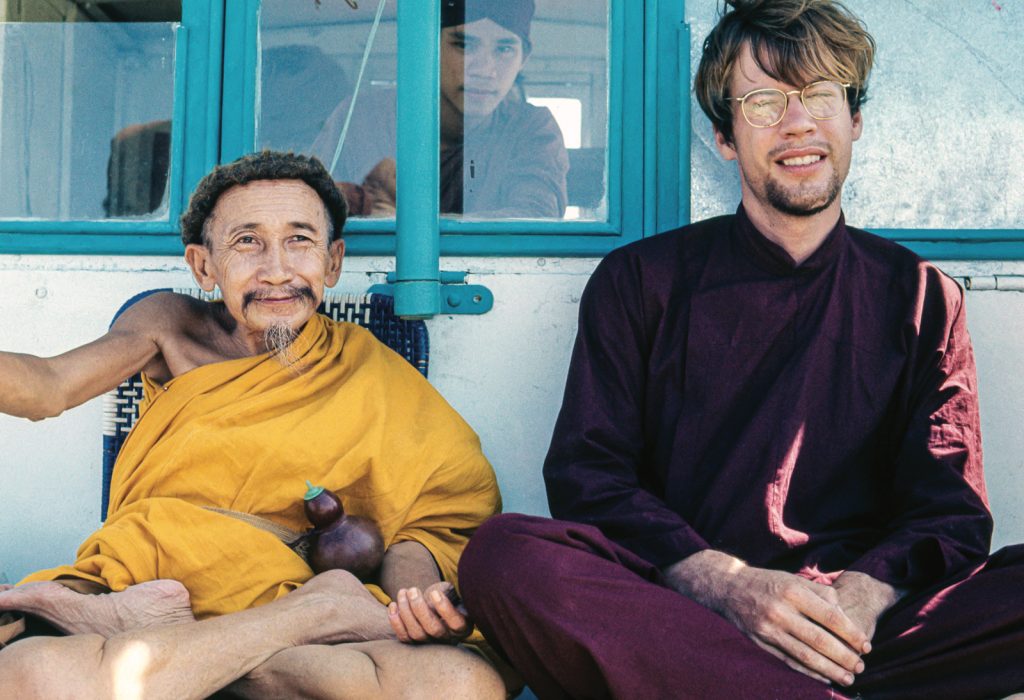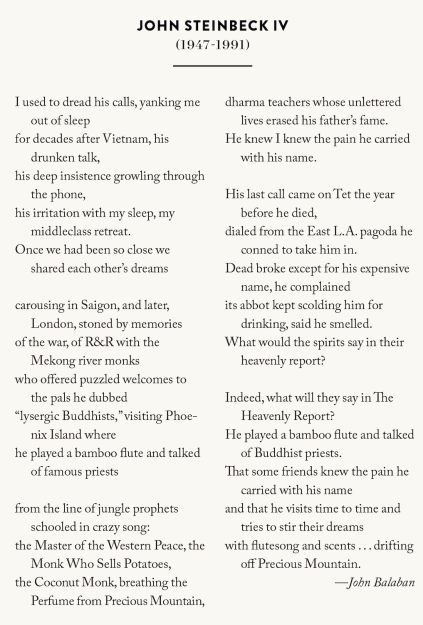John Steinbeck IV, one of the sons of the iconic American author of such classic novels as The Grapes of Wrath and Of Mice and Men, was a journalist, screenwriter, and memoirist. In 1965, John was drafted into the U.S. Army and went to Vietnam, where he served as a broadcast specialist and war correspondent. His memoir In Touch, published in 1969, relates his wartime experiences. Following his military service, John returned to Vietnam as a journalist. He founded Dispatch News Service, which broke the story of the My Lai Massacre and the Con Son Prison “tiger cages.” John took up residence in Saigon and on Phoenix Island in the Mekong River, the religious haven of the followers of the Coconut Monk, Dao Dua. John’s article “The Coconut Monk,” republished in the Spring 2019 issue of Tricycle, tells of his tutelage under the eccentric, widely revered, and politically powerful tree-dwelling yogi of the title.
After Vietnam, Steinbeck eventually settled in Boulder, Colorado, where he became a student of Chögyam Trungpa Rinpoche. John and his wife, Nancy, were among the first outspoken critics of abuses within the community that formed around Trungpa and his successor, Osel Tendzin. In 1988, after years of alcoholism, John turned to sobriety and started participating in Twelve Step meetings. In 1990, he began work on his autobiography, but in 1991, while undergoing corrective surgery for a ruptured disc, he died suddenly. He was 44. His unfinished manuscript was completed by Nancy Steinbeck and was published in 2001 as the co-authored The Other Side of Eden: Life with John Steinbeck.
John Balaban, who had served in Vietnam evacuating war-injured children, first met Steinbeck in Saigon prior to going to Phoenix Island, where he taped and translated the oral poetry sung for centuries in the countryside and later published in his Ca Dao Vietnam: Vietnamese Folk Poetry. Balaban is the author of thirteen books of poetry and prose, including the wartime novel Coming Down Again. His books have won the Academy of American Poets’ Lamont Poetry Prize, inclusion in National Poetry Series, and two nominations for the National Book Award.
—The Editors
Thank you for subscribing to Tricycle! As a nonprofit, we depend on readers like you to keep Buddhist teachings and practices widely available.

